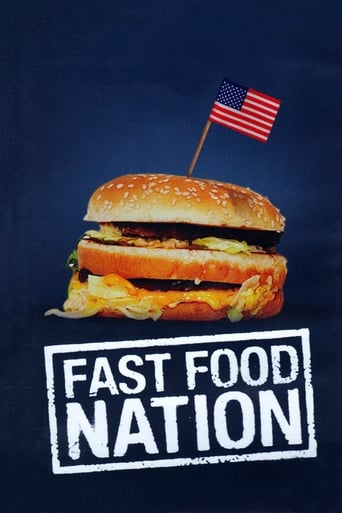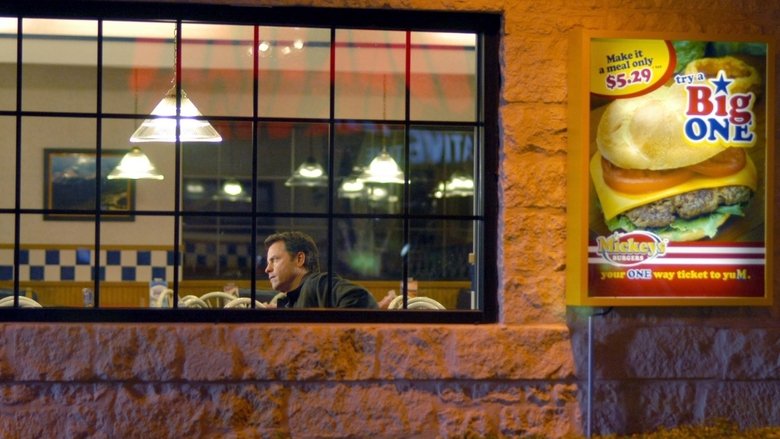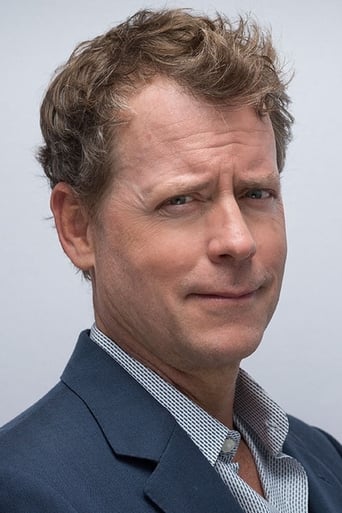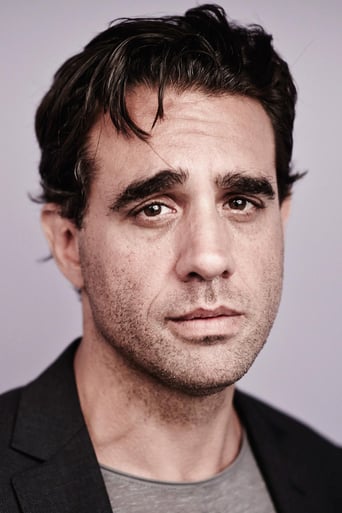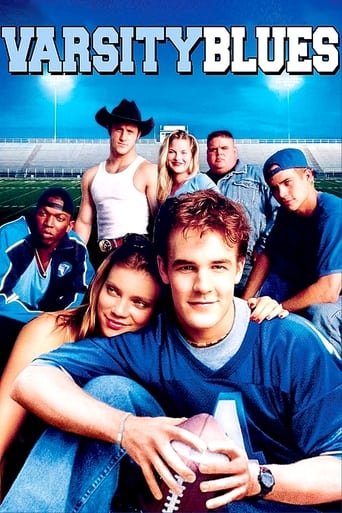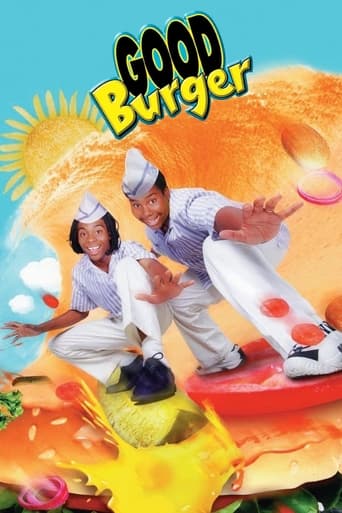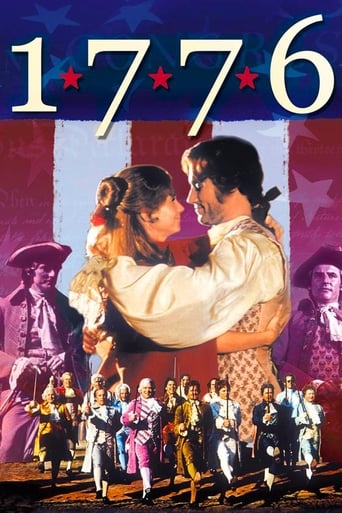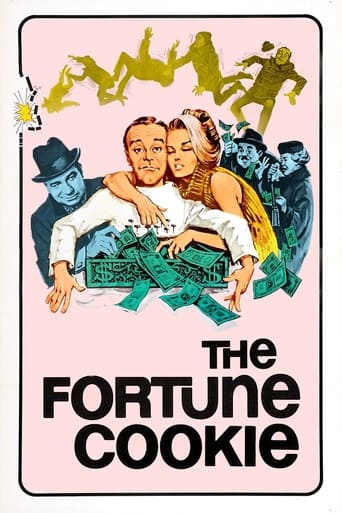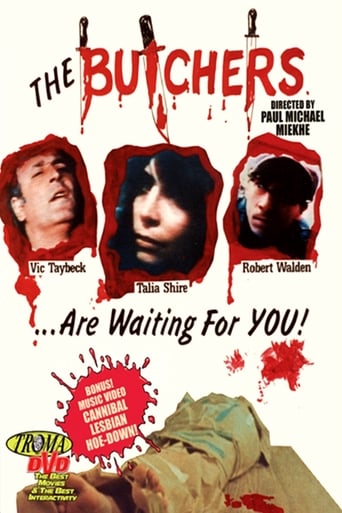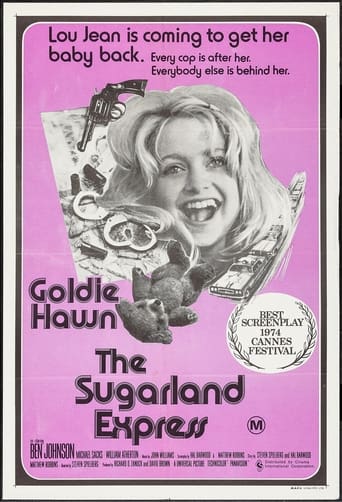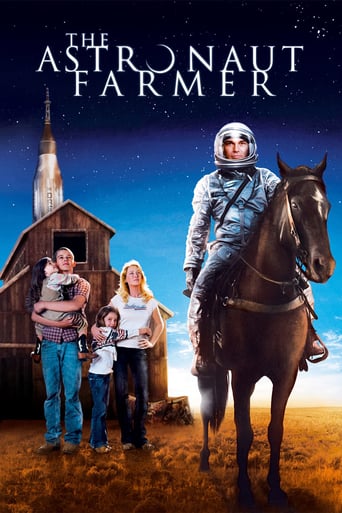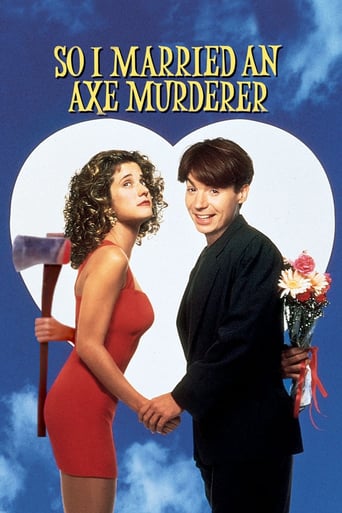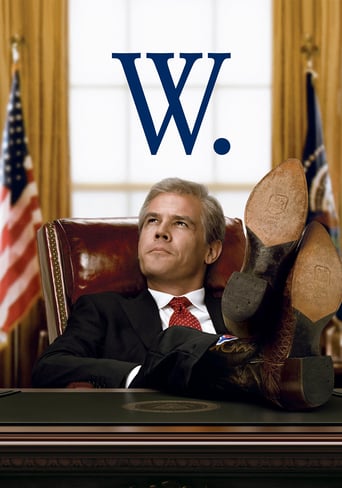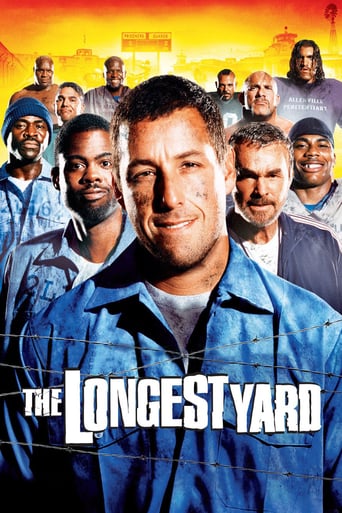Fast Food Nation (2006)
A dramatised examination of the health issues and social consequences of America's love affair with fast food.
Watch Trailer
Free Trial Channels
Cast


Similar titles
Reviews
This movie is the proof that the world is becoming a sick and dumb place
It really made me laugh, but for some moments I was tearing up because I could relate so much.
There are moments that feel comical, some horrific, and some downright inspiring but the tonal shifts hardly matter as the end results come to a film that's perfect for this time.
Great example of an old-fashioned, pure-at-heart escapist event movie that doesn't pretend to be anything that it's not and has boat loads of fun being its own ludicrous self.
Fast food chains have become a big part of our culture in the last several decades, and fast food industries have become of the biggest running companies in America, with every state populated with thousands of fast food restaurants on seemingly every corner. Many fast food joints however, have been targets of criticism by not only their poor nutrition but most importantly their unsanitary work environment, McDonald's as a prime example. The global influence of the fast food industry and the controversy surrounding the work environments are best demonstrated in Eric Schlosser's novel 'Fast Food Nation: The Dark Side of An American Meal'. Directed by Richard Linklater, this film based on the novel of the same name paints an average, but clear on the action inside the world of fast food making. This ensemble piece follows multiple interconnected story lines and characters' experience with the fast food industry. Greg Kinnear plays Don Henderson, a marketing director of a popular burger point Mickey's, home of one of their most popular hamburgers on the menu known as the "Big One". When he receives reports from the health department about cow fecal matter being discovered in the party of the hamburgers, Don takes a trip to Colorodo to investigate the health status of the company that provides the burger joint with the hamburger meat. There, he meets a young college girl Amber (played by Ashley Johnson) who happens to work at a Mickey's restaurant and is unaware of the repulsive practice that goes on in the meat factory where the parties are made. Meanwhile, Mexican family crosses over the border of Mexico and moves to Colorodo where husband Raul (played by Wilmer Valderrama) gets a job at the meat factory, only to witness the horrifying truth of the backbone behind the fast food industry.This film is written with a somewhat similar story structure to Richard Linklater's other works which often revolve around the social interactions of characters and personal relationships. Linklater takes a slightly different approach in this film by taking the characters and drawing them into some thought-provoking subject matter dealing the issues that still go on in our culture today. The movie tries to retain a documentary type feel and it sometimes works, but others times tends to steer off focus. From the mildly solid screenplay, the film paints a fairly realistic picture on the atrocities that occur in the fast food industry and the repulsiveness of the poorly maintained work environment that many citizens on the outside are not aware of. Many scenes set in the meat factory feature some of the most gruesome depictions of the work that is involved, including the slaughtering of cows and the dangers of the unprotected environment that are severely taken for granted. The worst consequence is best demonstrated in one particularly graphic scene. And yes, it is disgusting to watch and provokes many thoughts in your head how citizens have already unhealthy eating products tainted with foreign matter inside and how the industries have been putting the health of many consumers at risk. But the main problem comes from the occasional inconsistencies in the writing. Some scenes tend to spend a little too much time focused on the relationships between the characters, and the result fogs over the main point, mainly during some scenes with Ethan Hawke and Bruce Willis for an example, who don't seem to serve much for he story. Linklater's style of writing doesn't quite work as well here as it does in his other films, but luckily it manages to get its crucial message out that could have viewers thinking twice before making another trip to a fast food restaurant.Fast Food Nation is a fine movie with some fine performances by a solid cast and fine writing despite its flaws in direction. This is a thought-provoking movie with an important message about fast food companies and something to at least, spark some interest. This may not be one of Richard Linklater's most memorable and never quite comes to close to being such, but it is somewhat effective and could have viewers sprawling with second thoughts about fast food or finding employment at fast food joint.
Fast food chain Mickey's Burger has a hit in the Big One. Don Anderson (Greg Kinnear) is a marketing VP in development in their California headquarters. Independent research has found extremely high fecal count in their frozen patties and Don is sent to the Colorado meat-packer to investigate. Old-timer Rudy Martin (Kris Kristofferson) tells him about the hard truths. Harry Rydell (Bruce Willis) is their corrupt meat buyer. Amber (Ashley Johnson) and Brian (Paul Dano) work at the local Mickey's. Amber lives with her single mom Cindy (Patricia Arquette) and they're visited by activist uncle Pete (Ethan Hawke). Meanwhile illegals like Raul (Wilmer Valderrama), Coco (Ana Claudia Talancón), and Sylvia (Catalina Sandino Moreno) sneak into the US to become part of low wage workforce being exploited. Supervisor Mike (Bobby Cannavale) abuses his position by hooking up with Coco. Her sister Sylvia is not happy with the relationship and her drug use.Director Richard Linklater is adapting the scathing investigative book on the fast food industry by layering three stories on top of the material. It leaves the movie scattered, a bit flat, and too preachy to have much compelling shock factor. Linklater is caught trying to make drama while doing a documentary. I do find two of the three stories to be pretty interesting. I don't like Kinnear's character's awkward naivety. He's in the meat business but has to act dumb. Willis may as well twirl his evil mustache. There is a tale of corporate political corruption but it fails to dramatize it. Ashley Johnson is an interesting lead but her side of the story pales in comparison to the illegals working in the plant. I think that is where the movie shines and it also has the horrifying slaughter room walk-through. The movie would have been more compelling concentrating on that story.
Richard Linklater continues to impress with this social commentary/document film. The risk with this type of film is that the message will either be too heavy handed or too subtle/unclear to be effective. I think Linklater has managed to straddle that line nicely here and the film's central theme of America as a "fast food nation" in more than one aspect is right on the mark. The conformity and complacency of people as portrayed in this film is all too realistic. Too many people's lifestyles resemble the immediate but empty satisfaction of a fast food meal.The logical consequence of this attitude is fat, lazy people who are unwilling/unable to make any sort of positive impact on anything at all. We see that even the most sympathetic character, the young woman who joins an environmentalist group, wants to help but just can't figure out how. A minor setback seems to be all it takes to end her group's attempts at action. Another major character, the fast food executive who seems to have good intentions, is afraid that he will risk his job by speaking out against the bad things he sees. It's just easier for these people to ignore the problems they see than it is to do something about them.The problem doesn't seem to be limited to American citizens however; most of the Mexican immigrants are quickly sucked into the fast food mentality.One of Linklater's greatest strengths is capturing the behavior of normal people. He showcases this talent with Fast Food Nation.
Judging from the title, I'd expected this to be something along the lines of a fable like "Supersize Me" or some documentary on The Learning Channel teaching us a lesson on hot dogs and french fries. But no. It's am ambitious drama about the illegal importation of Mexicans to work in a meat-processing plant to service a chain of burger joints called "Mickeys." There are multiple narratives. They cover the story of a marketing agent for Mickeys (Gregg Kinnear) who finds out more about how Mickey's burger patties are produced than he cares to know. Then there are the illegal Mexicans who include the magnetic Colombian actress Catalina Sandino Moreno from "Maria Full of Grace." Actually I got some of the Mexicans mixed up. Not Moreno or Luis Guzman, because they're familiar faces, but some of the other characters blend into one another, especially in the meat-packing plant where all of them wear the same uniforms and surgical masks. We get to know a little about some high school kids who are offended by the conditions the cattle live under, and by the fact that there excreta are dumped into ponds and eventually reach the river. There are relatively short scenes involving Kris Kristofferson and Bruce Willis.The movie is a polemic that demonstrates how money and the need to make as much of it as possible corrupts. "Everything's being taken over by machines," intones Kristofferson, an old curmudgeon who loves "the land." That's pretty much the point of the whole movie, as long as we can define "machine" broadly to include mechanisms made up of socially agreed-upon rules.I was generally sympathetic to the film's agenda but it might have been better if the script had stuck with one person and one narrative thread -- maybe Kinnear's. The script is guilty of pandering though. Mickey's Burgers corrupts, and absolute Mickey's Burgers corrupt absolutely. There's something hateful about everyone associated with Mickey's. The foreman bones all the good-looking young women. Even the guy working at the local outlet spits a ginder into one of the burgers before passing it on to the customer. (Cf., "Casino" in which the same thing was done.) And what, asks the film, can be done about it all? Nothing. The dice of the gods are loaded. The governor of Colorado received hundreds of thousands of dollars from Uniglobal Meat Packing, and the chief of the state's EPA is married to one of its executives. The high schoolers get a lecture from an experienced activist and they cut the wires surrounding the cattle pen. Alas, the cattle are too stupid to know they have been freed and they refuse to leave. That's one advantage cattle have over us. They don't suffer from ontological Angst. They don't ask themselves questions like, "What the hell am I doing, standing here up to my shakra points in my own manure?" They probably don't have any fear about their fates because they don't have the concept of "death". It comes as a surprise when one of them is beaned with an air gun, drained of blood, gutted, sawed up, slashed to pieces, and fed to happy families. The writers and director have the good taste to save this scene for the climax of the movie. I mean that sarcastically.Eating meat represents a low level of ecological efficiency. Instead of eating 100 calories worth of grass, we feed the grass to cattle, butcher them, and get 10 calories out of it. The rest of it goes to waste, in both senses of the word. Yet the movie is offensively preachy. Why must an important message be spelled out as if to a class of first graders, encased in lectures? Seeing the chunks of meat and fat being processed is enough to turn anyone into a strict vegetarian. The problem is that Homo sapiens is, and has always been, an omnivore. And the problem behind THAT problem is that there are too many Homo sapiens and their number is increasing exponentially. The more of us there are, the more pressure we must by necessity put on the natural and the economic environments. If things continue as they are, there won't be any Kris Kristofferson's boasting about protecting his land from machines. We'll all be chewed up and spit out like hamburger patties because people have to eat, don't they? The only nation on earth that seems to have this figured out is China. It doesn't take a computer to nail down the figures. An abacus will do.Something just occurred to me. Suppose you're a vegetarian restricted to a kosher diet? And in addition you were committed to organically grown food and averse to genetically engineered food, artificial additives, preservatives, and you avoided fats because they cause cancer, and salt because of concerns about blood pressure, and proteins because of the possibility of gout, and carbohydrates because they might lead to diabetes? That might ease the problem of overpopulation.

